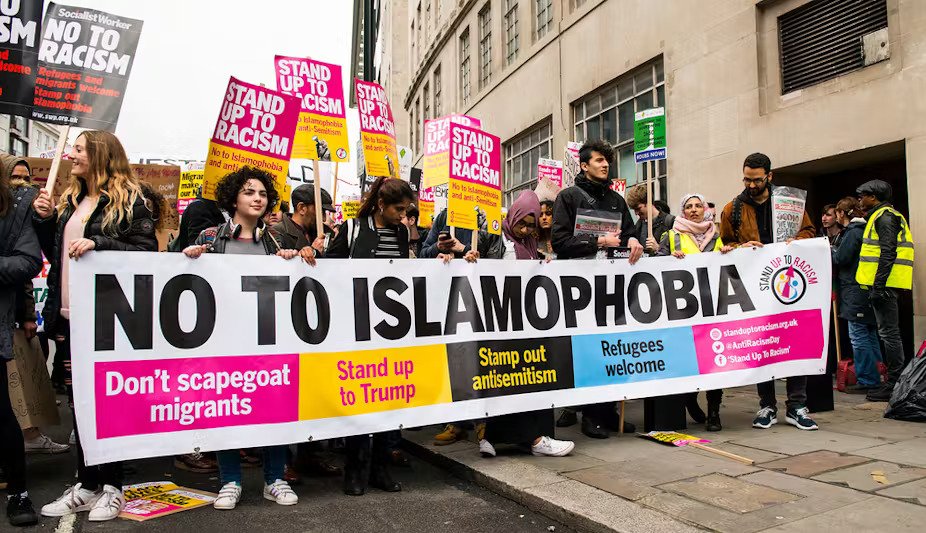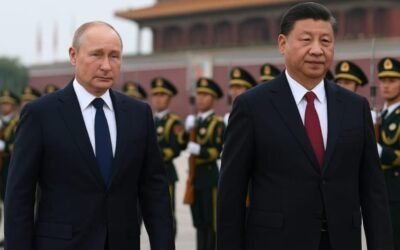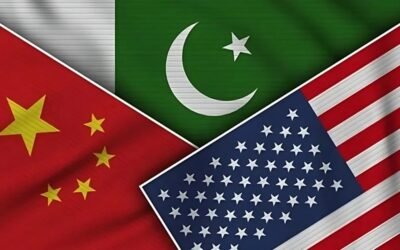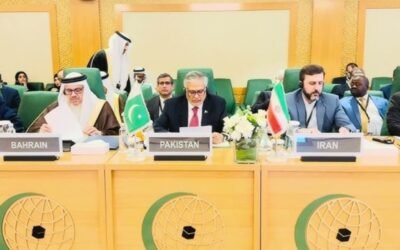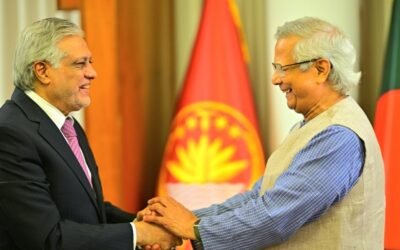In recent years, the world has experienced a concerning increase in “Islamophobia” – fear, prejudice, and hatred against Muslims. This includes hate speech, discrimination, and violence, often driven by online content and political narratives. While anti-Muslim sentiments are rising worldwide, Pakistan has become a leading voice and a strong advocate for combating Islamophobia on the international stage. Through key resolutions at the Organisation of Islamic Cooperation (OIC) and impactful speeches at the United Nations (UN), Pakistan is shaping a new narrative for global respect and collective action.
The Rising Threat of Islamophobia
Islamophobia is a serious global issue. It causes hostility and intolerance toward Muslims, both online and in person. The UN Secretary-General, António Guterres, has repeatedly condemned this increase in anti-Muslim hate, warning that it affects not only Muslims but also other minority groups.
Recent data highlights the alarming trend:
- United Kingdom: In the year ending March 2023, 44% of religious hate crimes were against Muslims (3,400 offences). Reports to the Islamophobia Response Unit (IRU) saw a 365% increase in October 2023, following major global events.
- In the United States, Over 60% of American Muslims have reported experiencing religious discrimination each year since 2016. The Council on American-Islamic Relations (CAIR) reported a 172% increase in bias incidents between October and December 2023.
- Europe: There’s a rising number of hate crimes, hate speech, and threats targeting Muslim and Jewish communities across Europe. Mosques have been vandalized, and threatening letters have been sent.
- India: A 2019 report found that half of the police surveyed showed anti-Muslim bias, making them less likely to stop crimes against Muslims.
These trends show that Islamophobia is a widespread issue, affecting Muslims globally.
Pakistan’s Role in Raising Global Awareness
Pakistan has taken it upon itself to lead the charge against Islamophobia on the global stage. It has consistently raised awareness about this growing threat and pushed for collective international action.
- Persistent Diplomatic Efforts: Pakistan’s permanent representatives to the UN, including Ambassador Munir Akram and Ambassador Asim Iftikhar Ahmad, have consistently called for decisive action against rising anti-Muslim hate and intolerance. They argue that Islamophobia is being used for political gain and is fueling hate.
- Championing the True Message of Islam: Pakistani leaders, including Acting President Syed Yousuf Raza Gillani and Prime Minister Shehbaz Sharif, have reaffirmed Pakistan’s commitment to spreading the true message of Islam, one of love, peace, and tolerance.
Former Prime Minister Imran Khan actively highlighted Islamophobia at the UN and called for Muslim unity on the issue. In October 2020, he posted:
“My letter to leaders of Muslim states to act collectively to counter the growing Islamophobia in non-Muslim states esp Western states causing increasing concern amongst Muslims the world over.”
Key Platforms: OIC and UN
Pakistan has effectively used two major global platforms to advance its agenda against Islamophobia: the OIC and the UN.
- Leadership in OIC: Pakistan has a leading status in the Organisation of Islamic Cooperation (OIC), being the second-largest Muslim-majority member and the only Muslim nuclear power. Pakistan has actively used the OIC platform to champion Muslim causes, including advocating for Palestine and Kashmir, and to formulate a unified response to Islamophobia. The OIC, led by Pakistan, formed a core group in November 2020 to push for a UN resolution.
- Advocacy at the UN: Pakistan’s persistent efforts at the United Nations have yielded significant results. It successfully pushed for two landmark UN resolutions:
- International Day to Combat Islamophobia (March 15): On March 15, 2022, the UN General Assembly adopted a Pakistani resolution (A/RES/76/254) to designate March 15 as the International Day to Combat Islamophobia. This date marks the anniversary of the Christchurch mosque shootings in New Zealand, where 51 worshippers were killed. This resolution was adopted by consensus, with 55 Muslim countries co-sponsoring it. Pakistan views this as a “defining moment.”
The first observance of the International Day to Combat Islamophobia was marked by a special UN session in March 2023.
-
- UN Special Envoy to Combat Islamophobia: In March 2024, the UN General Assembly adopted another Pakistan-led OIC resolution calling for measures to combat Islamophobia, including the appointment of a UN Special Envoy to combat Islamophobia. This envoy will monitor, report, and advise on rising Islamophobic trends globally. Pakistan welcomed the appointment of Miguel Ángel Moratinos as the first-ever Special Envoy in May 2025.
Legislative and Diplomatic Successes
Pakistan’s efforts have not just been about resolutions but also about shaping international discourse and encouraging concrete actions.
- Consensus Building: Pakistan’s diplomatic teams worked hard to build consensus for the UN resolutions, engaging with various countries, including China, Russia, the US, and European nations, despite initial resistance from some.
- Call for Legislation: Pakistan has urged other governments to adopt laws to prevent and punish acts of Islamophobia, including the desecration of holy books, arguing that such acts are not justified under freedom of expression. Some Western countries like Sweden and Denmark have enacted laws to address Islamophobia, including criminalizing the desecration of the Holy Quran. Canada and the US have also appointed special representatives or launched national strategies.
- Promoting Interfaith Harmony: The purpose behind these moves is to promote tolerance, peaceful coexistence, and interfaith harmony.
Why Pakistan’s Leadership Matters
Pakistan’s consistent and leading role in combating Islamophobia is deeply significant:
- Global Voice for Muslims: It positions Pakistan as a powerful advocate and defender of Muslim rights and dignity on the global stage.
- Enhanced International Image: It helps counter negative stereotypes about Pakistan, portraying it as a responsible and proactive member of the international community.
- Moral Leadership: It demonstrates Pakistan’s moral leadership in addressing a pressing human rights issue that affects billions worldwide.
- Deterring Hate: By pushing for legal and policy measures, Pakistan contributes to creating a safer environment for Muslims globally and setting precedents against hate speech.
Challenges and Ongoing Efforts
Despite the successes, the fight against Islamophobia is ongoing. Acts of hate, discrimination, and violence continue to rise in various parts of the world. Pakistan and its allies continue to call for the full implementation of UN resolutions and for social media platforms to take responsibility for harmful content.
Conclusion
Pakistan is unequivocally leading the charge against Islamophobia on global platforms. Through persistent diplomacy, strategic engagement with the OIC, and successful resolutions at the United Nations, it has elevated the issue from a regional concern to a globally recognized challenge. The designation of March 15 as the International Day to Combat Islamophobia and the appointment of a UN Special Envoy are monumental achievements. This leadership not only reflects Pakistan’s deep commitment to its faith but also strategically enhances its international standing, proving its crucial role in fostering global respect, understanding, and justice for all.
References
- UN General Assembly. (2024, March 16). UNGA overwhelmingly adopts Pakistani resolution calling for unitedly fighting Islamophobia.
- Islamophobia Awareness Month. (2024, August). Global – Islamophobia Awareness Month Report.
- United Nations. (n.d.). International Day to Combat Islamophobia | United Nations.
- OIC. (n.d.). Countering the Islamophobia Industry – Organisation of Islamic Cooperation.
- OIC. (2022, March). FOURTEENTH OIC REPORT ON ISLAMOPHOBIA | DECEMBER 2020 – JANUARY 2022.

